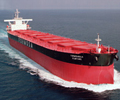Iran Stirs The Oil Market

For nearly eighteen months, the oil market has been dominated by the pandemic, but as it begins to wane—slowly—other concerns are coming to the fore. Yesterday’s attempted hijacking of a tanker in the Gulf of Oman serves as a reminder that any number of geopolitical developments, many centered on Iran, could create new turmoil and possibly much higher oil prices.
There are two factors that could send prices lower in the near term—a much bigger impact from the covid virus, specifically variants such as Delta or even newer ones and/or a breakdown in OPEC+ cohesion. All indications are that the latter is unlikely or at least not imminent, while the former does not seem to be a major threat, as vaccinations spread throughout the wealthier, high oil demand nations.
Two recent attacks on tankers in the Arabian Sea/Gulf of Oman area, both ships ‘connected’ to Israel, would seem to be more than random events but the actual meaning remains uncertain. As I have written before, there is always the possibility that rogue elements or even non-state actors could be involved. Drones have become the weapon of choice for a number of groups in that region, including attacks on Saudi Arabia originating in Yemen (and maybe Iran) although it is hard to believe that some individuals or small groups had personal motivations to launch the attack on the tanker. Hijackings are often carried out for financial gain by private actors, but the apparent intention to take the ship to Iran would seem to rule out that possibility.
High-level Iranian politics are opaque (at least to me) but there are always factions in any government and society. (Someone once said two Frenchmen are an argument, three are a political party, but Iranian politics are much more constrained than that.) It is entirely possible that a faction is attempting to put pressure on the new President, Ebrahim Raisi, to adopt a hard line in negotiations with the U.S. over the nuclear power agreement. He has not shown signs of moderating his government’s position in those talks, but conceivably some might worry that he will not be sufficiently obstreperous and think that creating ‘facts on the sea’ will narrow his options. Especially if the U.S., U.K. and/or Israel retaliate with military action, progress in Vienna would seem much more distant than before his election.
Another possibility is that President Raisi himself authorized the actions in an effort to bolster his hard-line credentials and demonstrate his willingness to stand up to the U.S. especially. Which suggests two scenarios: first, that he intends to continue with his autarkic stance, pushing the country to overcome the sanctions rather than fight for their removal, or second, he could be planning to reach an agreement with the U.S. but first wishes to show toughness.
This is the old ‘Nixon goes to China’ concept, that is, compromise is easier for a hard-liner than a moderate, as the conservatives in government would find it harder to attack President Raisi as weak on the U.S. than they did his predecessor. An end to sanctions would seem very appealing to many outside observers given the multiple challenges faced by Iran, from covid to drought to low oil revenues. Public demonstrations over water shortages could mean the President would see an end to sanctions as a major victory, but given his record, it is also easy to think that he would prefer that his country resist all external pressures.
If there are no more attacks on tankers, it would imply either that he has reined in rogue elements or that he feels he has demonstrated his toughness sufficiently, the latter suggesting an optimistic outcome for the talks in Vienna and an earlier return of Iranian oil to markets. But if attacks continue, the message would be that he opposes any moderation of the country’s stance vis-à-vis the U.S. (and others), in which case Iranian oil exports could increase, but only gradually.
Given the high level of surplus capacity in OPEC+ and concerns about oil demand due to the Delta variant of covid, Iran’s leverage over oil markets is constrained at present. Occasional tanker attacks will excite traders briefly but are otherwise unlikely to move prices for any period of time. Once the global recovery has recovered, that will change.
Source: Forbes

 Hellenic Shipping News Worldwide Hellenic Shipping News Worldwide, Online Daily Newspaper on Hellenic and International Shipping
Hellenic Shipping News Worldwide Hellenic Shipping News Worldwide, Online Daily Newspaper on Hellenic and International Shipping





















 PG-Software
PG-Software